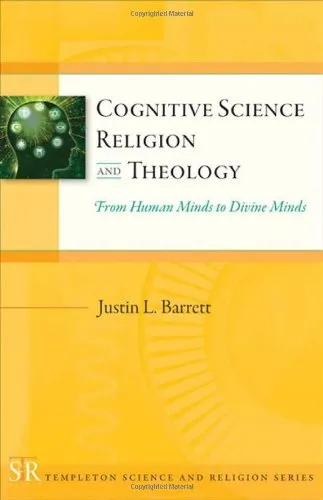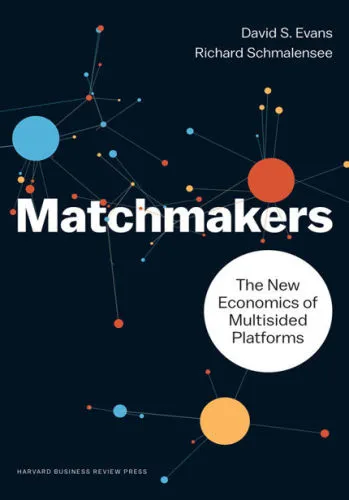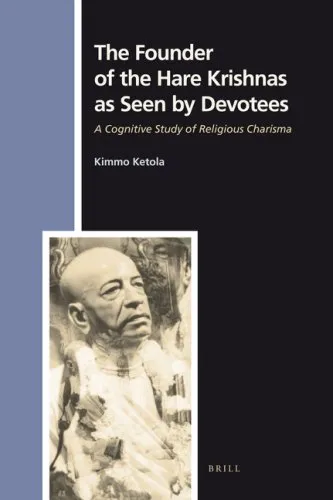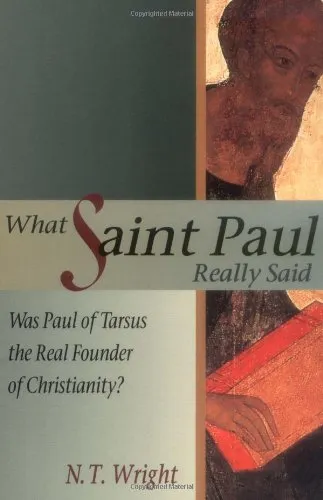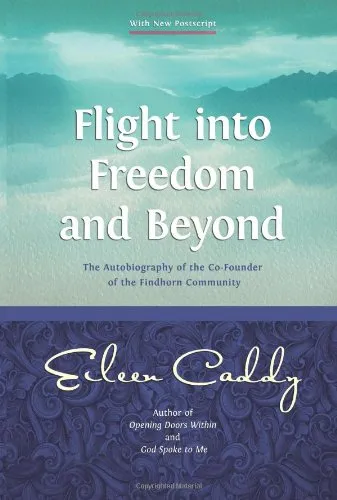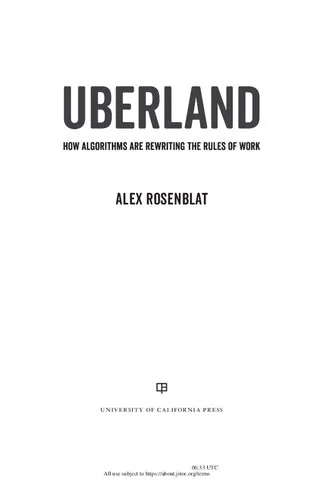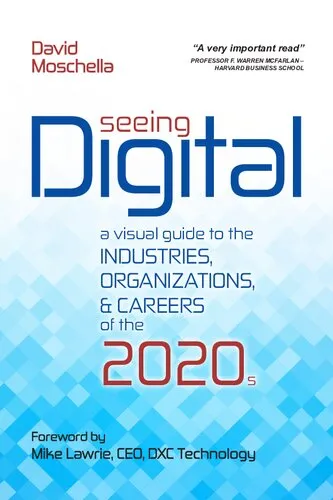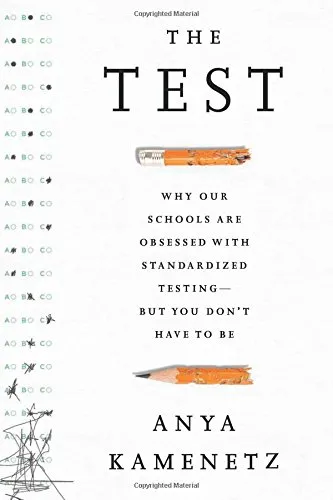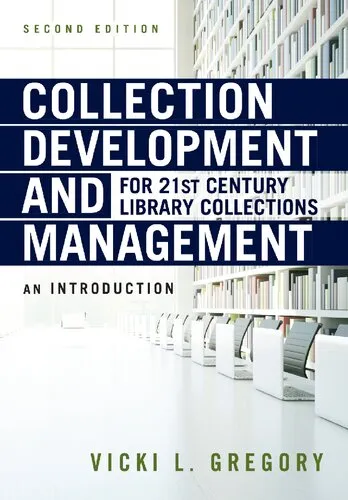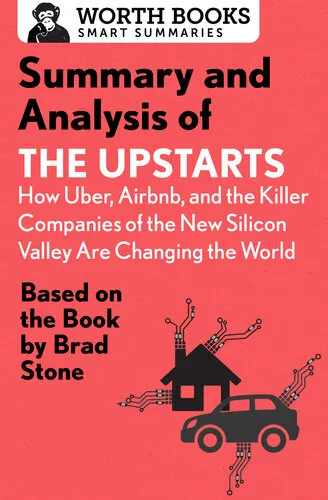Cognitive Science, Religion, and Theology: From Human Minds to Divine Minds
4.5
بر اساس نظر کاربران

شما میتونید سوالاتتون در باره کتاب رو از هوش مصنوعیش بعد از ورود بپرسید
هر دانلود یا پرسش از هوش مصنوعی 2 امتیاز لازم دارد، برای بدست آوردن امتیاز رایگان، به صفحه ی راهنمای امتیازات سر بزنید و یک سری کار ارزشمند انجام بدینکتاب های مرتبط:
معرفی کتاب
کتاب Cognitive Science, Religion, and Theology: From Human Minds to Divine Minds نوشتهٔ جاستین ال. بَرِت، اثری مؤثر و تأملبرانگیز دربارهٔ پیوندهای علوم شناختی، دین، و الهیات است. این کتاب به بررسی فرایندهای ذهنی انسان که مبنای باورهای دینی هستند میپردازد و بهویژه به مکانیسمهای شناختی که موجب شکلگیری و پایداری این باورها میشود توجه دارد. اثر مذکور پلی میان علوم شناختی و الهیات میسازد و دیدگاههای جدیدی دربارهٔ نحوهٔ تعامل ذهن انسان با مفاهیم الهی ارائه میدهد.
خلاصهای از کتاب
کتاب Cognitive Science, Religion, and Theology در چندین فصل به بررسی چگونگی تاثیرگذاری علوم شناختی بر فهم ما از دین و الهیات میپردازد. جاستین بَرِت با بهرهگیری از نظریههای روانشناسی تکاملی، انسانشناسی و علوم شناختی نشان میدهد چگونه ساختارهای ذهنی و ویژگیهای روانشناختی ما موجب پیدایش و حفظ باورهای دینی میشوند. او سوالات اساسی از جمله «چرا انسانها به خدا باور دارند؟» و «چگونه میتوان باورهای دینی را از منظر شناختی تحلیل کرد؟» را مطرح کرده و به شکل سیستماتیک به این مسائل میپردازد.
نویسنده همچنین مفهوم Hyperactive Agency Detection Device (HADD) و سایر مباحث کلیدی مرتبط با علوم شناختی و دین را توضیح میدهد تا نشان دهد که چگونه ذهن انسان تمایل به شناسایی الگوها و عاملها دارد، حتی در مواردی که این عاملها واقعاً وجود ندارند. از طرف دیگر، کتاب جنبههای الهیاتی باورها را بررسی کرده و پرسشهایی فلسفی دربارهٔ رابطهٔ ذهن انسان و ذهن الهی مطرح میکند. این کتاب جریانی علمی و فلسفی را پایهریزی میکند که بسیاری از مطالعات میانرشتهای را تحت تأثیر قرار داده است.
نکات کلیدی کتاب
- بررسی چگونگی ارتباط علوم شناختی با باورهای دینی و الهیاتی.
- توضیح مفهوم HADD و نقش آن در تشخیص عاملها و پدیدههای ماوراءالطبیعی.
- تحلیل تکاملی باورهای دینی و موقعیت آنها در بستر فرهنگی و روانشناختی.
- بحث دربارهٔ پیوند بین ذهن انسان و ذهن الهی از منظر الهیات مدرن.
- پیشنهاد راهکاری میانرشتهای برای مطالعه دین به کمک علوم شناختی.
نقلقولهای معروف از کتاب
"Understanding religious belief through the lens of cognitive science does not undermine its authenticity; rather, it provides a deeper insight into why such beliefs have persisted across humanity."
"The human mind is finely tuned to detect design, purpose, and intention in the world around us — a trait that may well explain the universality of religious belief."
چرا این کتاب مهم است؟
کتاب Cognitive Science, Religion, and Theology یکی از مهمترین آثار در حوزهٔ مطالعات میانرشتهای دینی به شمار میرود. این اثر نهتنها پل ارتباطی بین علوم طبیعی و علوم انسانی است، بلکه چشماندازی جدید برای فهم بهتر باورهای دینی و نقش آنها در زندگی انسان ارائه میدهد. نویسنده با درک عمیق از دو حوزهٔ علوم شناختی و الهیات، توانسته بینشهایی نو دربارهٔ نحوهٔ تعامل ذهن انسان با جهان معنوی و الهی فراهم کند. این کتاب مناسب محققین، دانشجویان، و علاقهمندان به مطالعات دین است که به دنبال رویکردی علمی و تحلیلی هستند.
Introduction
Cognitive Science, Religion, and Theology: From Human Minds to Divine Minds is a profoundly thought-provoking exploration of where mind sciences meet spirituality and theology. Authored by Justin L. Barrett, this book serves as a pioneering guide for scholars, students, and curious readers interested in understanding how findings from cognitive science can deepen and inform our ideas about religion and theology. By merging empirical insights with philosophical questions, the book pushes the boundaries of what we know about the human mind and the concept of the divine. This seamless blend of science and spirituality is not merely academic but speaks directly to the human experience.
Detailed Summary of the Book
The book begins by grounding readers in cognitive science, the interdisciplinary study of how humans think, learn, and perceive. Barrett establishes a clear foundation by explaining how mental processes shape our natural tendencies to believe in gods, spirits, and higher powers. Using cognitive byproducts such as agency detection and theory of mind, he illustrates how humans are cognitively predisposed to religious thought.
As the book progresses, Barrett introduces readers to the concept of "natural religion," the idea that belief systems arise organically from common cognitive processes. This scientific perspective challenges the notion that religion is purely a cultural or societal invention. From this premise, he transitions into discussing the implications for theology, addressing how belief in divine minds may transcend these cognitive mechanisms.
One of the book’s key ambitions is to investigate the possibility of divine minds interacting with human minds. Barrett does not shy away from tackling difficult questions, such as whether cognitive science can "explain away" belief in God or whether it can instead enhance our understanding of divine realities. By bringing insights from evolutionary psychology, cognitive anthropology, and neuroscience, Barrett provides a multidimensional outlook on the human impulse toward faith.
The final chapters delve into theological implications. Can theology adapt to findings from cognitive science without losing its distinct identity? Barrett makes a compelling case for open dialogue between these fields, suggesting that cognitive science can aid theology in addressing long-standing concerns such as the nature of God, divine action, and communication between the divine and human minds. This integrative approach leaves readers with a deeper appreciation for the ways science and faith intersect rather than conflict.
Key Takeaways
- Humans have natural cognitive tendencies, such as agency detection, that make belief in supernatural beings almost inevitable.
- Religion is not merely a cultural construct but arises from universal cognitive traits shared across humanity.
- Cognitive science provides tools for both understanding and appreciating the complexities of religious belief.
- Theology need not oppose science; instead, it can benefit from carefully integrating scientific findings.
- Belief in divine minds may have both cognitive underpinnings and transcendent dimensions worth theological exploration.
Famous Quotes from the Book
"Faith, like any human endeavor, does not emerge from thin air. It is cultivated in the soil of human cognition."
"Natural religion is not the enemy of theology—it is its explanation, its foundation, and its challenge."
"Understanding why humans believe in gods tells us as much about humanity as it does about divinity."
"The boundary between science and religion is not a wall, but a space for mutual dialogue and discovery."
Why This Book Matters
In a world where science and religion are often considered oppositional, Barrett’s book stands as a crucial bridge-builder. By demonstrating that cognitive science can explain—not invalidate—faith, the book invites readers to reconsider their assumptions about both disciplines. For theologians, the book introduces a new lens to view timeless theological questions, enhancing their relevance in a scientific age. For scientists, it opens up a fresh avenue for investigating one of humanity’s most enduring phenomena: religion.
The combination of scientific rigor and theological inquiry makes this text a valuable resource for anyone interested in the intersection of these fields. Whether you are a believer, skeptic, or simply curious, the book offers insights that challenge, inspire, and ultimately deepen your understanding of what it means to think about religion and the divine.
At its core, Cognitive Science, Religion, and Theology: From Human Minds to Divine Minds matters because it encourages a more nuanced, generous dialogue between two areas of human thought that too often seem at odds. It reminds us that understanding the origins of religious belief is not a threat to faith but an opportunity to further explore the wonder of human cognition and its relationship to the divine.
دانلود رایگان مستقیم
شما میتونید سوالاتتون در باره کتاب رو از هوش مصنوعیش بعد از ورود بپرسید
دسترسی به کتابها از طریق پلتفرمهای قانونی و کتابخانههای عمومی نه تنها از حقوق نویسندگان و ناشران حمایت میکند، بلکه به پایداری فرهنگ کتابخوانی نیز کمک میرساند. پیش از دانلود، لحظهای به بررسی این گزینهها فکر کنید.
این کتاب رو در پلتفرم های دیگه ببینید
WorldCat به شما کمک میکنه تا کتاب ها رو در کتابخانه های سراسر دنیا پیدا کنید
امتیازها، نظرات تخصصی و صحبت ها درباره کتاب را در Goodreads ببینید
کتابهای کمیاب یا دست دوم را در AbeBooks پیدا کنید و بخرید
1480
بازدید4.5
امتیاز0
نظر98%
رضایتنظرات:
4.5
بر اساس 0 نظر کاربران
Questions & Answers
Ask questions about this book or help others by answering
No questions yet. Be the first to ask!
